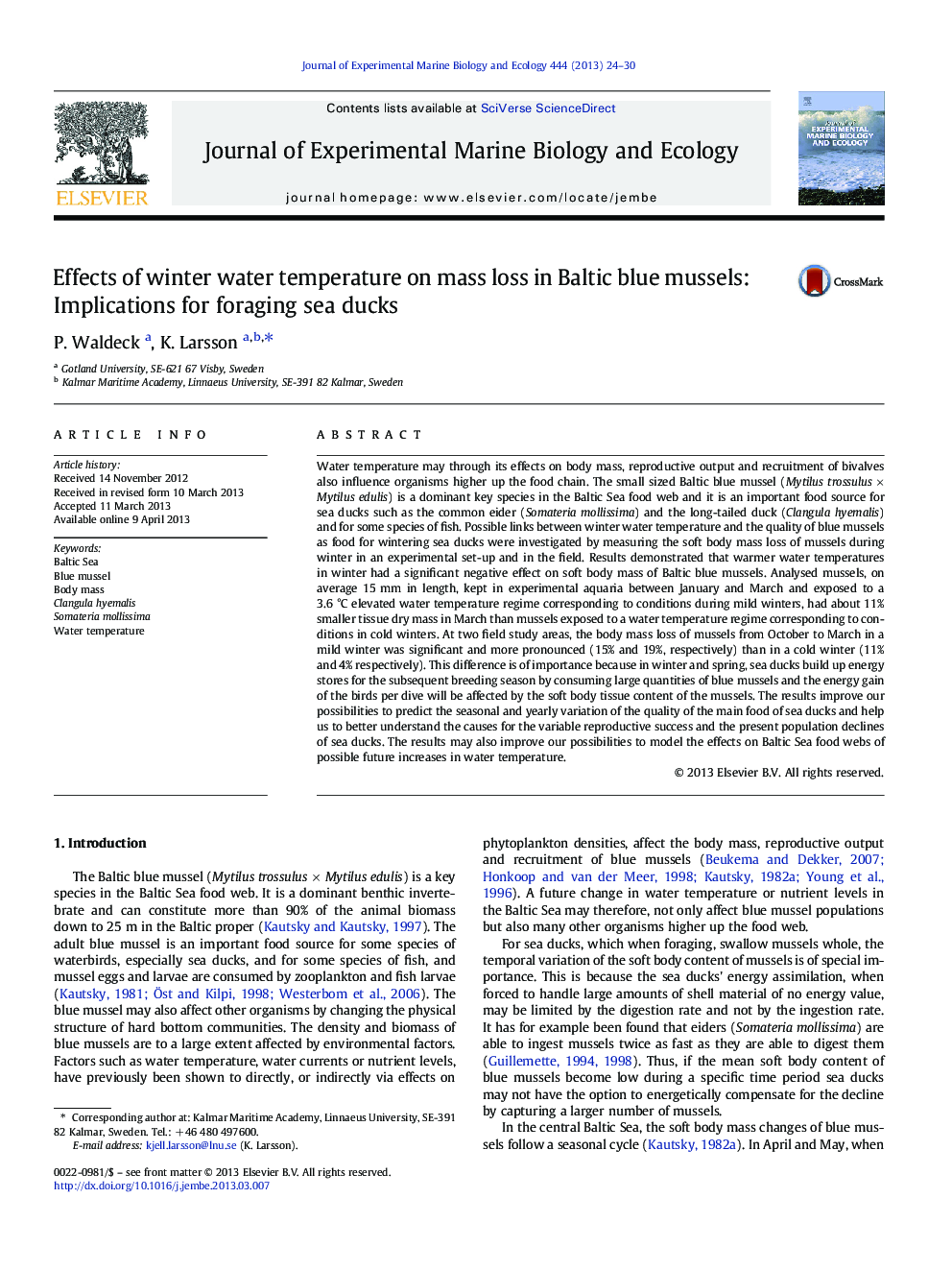| کد مقاله | کد نشریه | سال انتشار | مقاله انگلیسی | نسخه تمام متن |
|---|---|---|---|---|
| 4395651 | 1618431 | 2013 | 7 صفحه PDF | دانلود رایگان |

• Effects of winter water temperature on mass loss in blue mussels were analysed.
• Body mass loss of Baltic blue mussels was larger in mild than in cold winters.
• Body mass loss in winter was larger in experimentally elevated water temperatures.
• Increased winter water temperature may negatively affect sea duck populations.
Water temperature may through its effects on body mass, reproductive output and recruitment of bivalves also influence organisms higher up the food chain. The small sized Baltic blue mussel (Mytilus trossulus × Mytilus edulis) is a dominant key species in the Baltic Sea food web and it is an important food source for sea ducks such as the common eider (Somateria mollissima) and the long-tailed duck (Clangula hyemalis) and for some species of fish. Possible links between winter water temperature and the quality of blue mussels as food for wintering sea ducks were investigated by measuring the soft body mass loss of mussels during winter in an experimental set-up and in the field. Results demonstrated that warmer water temperatures in winter had a significant negative effect on soft body mass of Baltic blue mussels. Analysed mussels, on average 15 mm in length, kept in experimental aquaria between January and March and exposed to a 3.6 °C elevated water temperature regime corresponding to conditions during mild winters, had about 11% smaller tissue dry mass in March than mussels exposed to a water temperature regime corresponding to conditions in cold winters. At two field study areas, the body mass loss of mussels from October to March in a mild winter was significant and more pronounced (15% and 19%, respectively) than in a cold winter (11% and 4% respectively). This difference is of importance because in winter and spring, sea ducks build up energy stores for the subsequent breeding season by consuming large quantities of blue mussels and the energy gain of the birds per dive will be affected by the soft body tissue content of the mussels. The results improve our possibilities to predict the seasonal and yearly variation of the quality of the main food of sea ducks and help us to better understand the causes for the variable reproductive success and the present population declines of sea ducks. The results may also improve our possibilities to model the effects on Baltic Sea food webs of possible future increases in water temperature.
Journal: Journal of Experimental Marine Biology and Ecology - Volume 444, June 2013, Pages 24–30